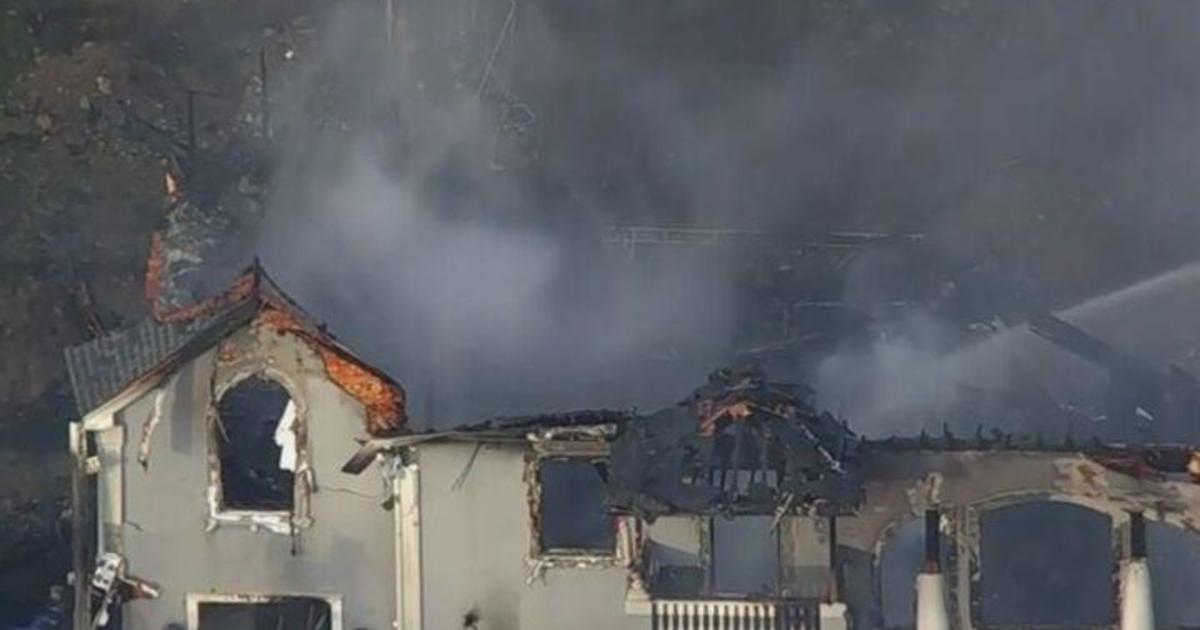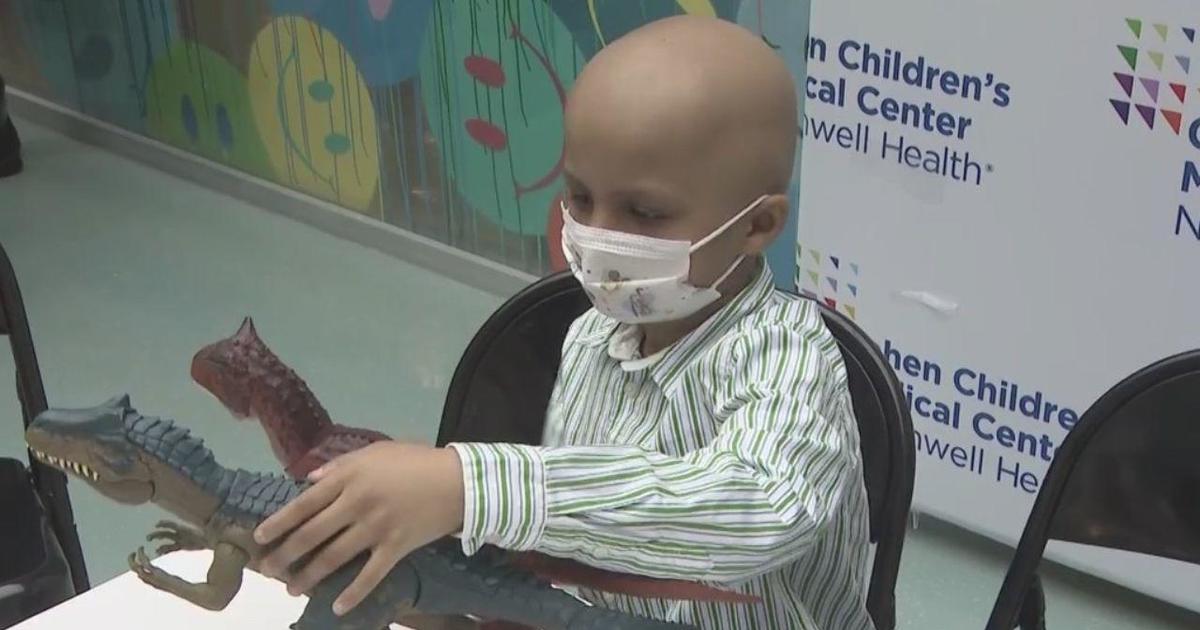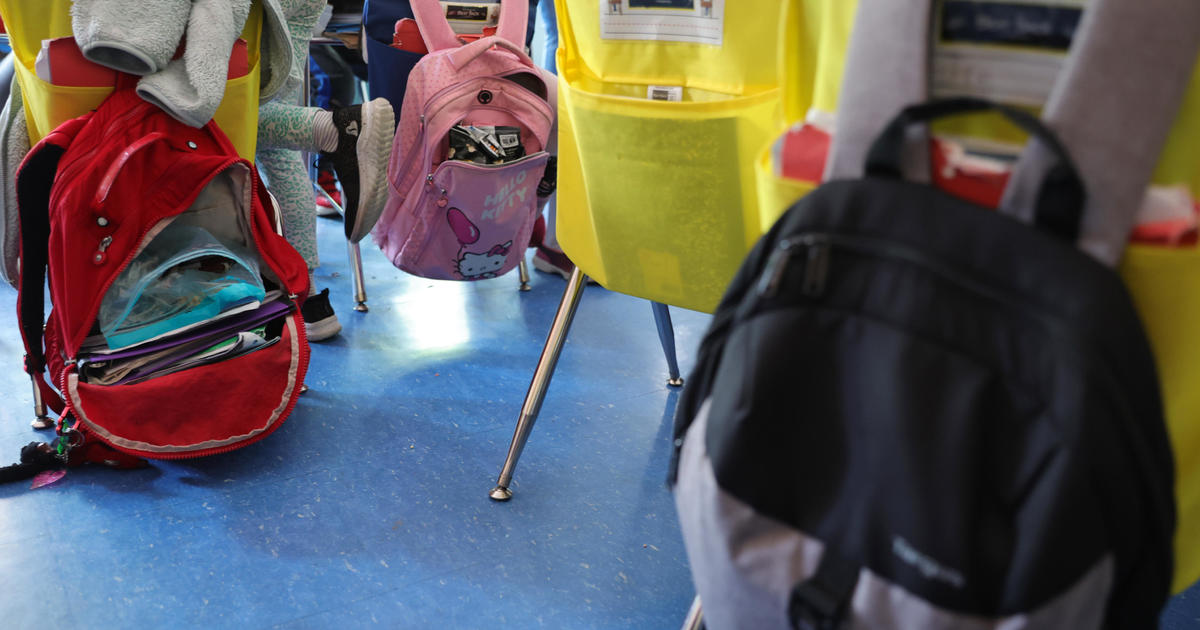Tri-State Area Sweats Through Another Summer Scorcher With Bouts Of Rain
NEW YORK (CBSNewYork) -- The Tri-State area dealt with more summer swelter Thursday, with high temperatures across the region broken up by pouring rain.
As CBS2's Lonnie Quinn reported some heavy thunderstorms were plowing through the area late Thursday afternoon, centering on southwest Connecticut.
A flash flood watch was in effect for much of the area in the late afternoon, and an air quality alert was in effect for the entire Tri-State area except for the eastern end of Long Island until 11 p.m.
Those in the air quality alert zone were advised to limit strenuous outdoor activity due to elevated ground-level ozone.
The high in Central Park Thursday did not quite make it to 90 degrees – it only hit 89 – meaning that in technical terms, this week likely will not constitute a heat wave for New York City. A heat wave requires three or more days with highs of 90 degrees or more.
But the temperature did exceed 90 degrees in many parts of the area. The high was 95 in Newark, 92 in Belmar, and 91 in Alpine, New Jersey, as well as 90 in White Plains.
And relief is not on the docket for Friday. A heat advisory is in effect until 7 p.m. Friday, and the forecast high is 91 degrees with heat indices making it feel like 95 to 100.
EXTREME HEAT: Forecast | Summer Safety Tips | NYC Cooling Centers
As CBS2's Vanessa Murdock reported, many New Yorkers were trying to avoid the hot, humid and uncomfortable conditions. But others were taking it in stride.
"It's hot," said Marc Griffin of Cobble Hill, Brooklyn.
"Like you're in an oven," said Lexi Portrait of Greenpoint, Brooklyn. "Everyone who came to the office was just dripping sweat."
"If you're on the beach, it's fine, but if you've got to hustle and bustle to work every day, not so cool," said Maurice of Trenton, New Jersey.
Fanny Ghorayeb disagrees. Muggy conditions make her heart swoon
"It heightens every sensation I have in my body and every sensation of the city," said Ghorayeb, of Toronto.
But for those who have to work in the heat, it's no walk in the park. Jessica Aguila was working in a food cart.
"It was too hot inside – outside, it's 85 degrees, inside it's like 110, 120," she said.
Aguila said dousing her head with cold water barely helped cool her down when the real feel temperature soared to nearly 100.
"It feels humid," said Remy, 7, who spent her afternoon keeping cool at Newport Green in Jersey City "getting wet in the water."
Indeed, if you're looking to beat the heat, many say there's no better place to cool off than in the water.
Resident Steven Bell took a mile and a half jog along the coast at Jones Beach Thursday morning, before cooling off with a swim in the ocean.
"I was feeling a bit more congested, a little bit more hot and humid than usually," he told WCBS 880's Sophia Hall.
In New Jersey, counselors and campers from East Rutherford took a dip in the lake at Darlington County Park.
"It's great, it's amazing," one camper told 1010 WINS' John Montone.
And in the interest of providing access to water, the New York City Department of Parks and Recreation said it is keeping the city's pools open an hour later than usual Thursday night. The city's Olympic and intermediate-sized pools will close at 8 p.m. Thursday rather than 7 p.m.
For those who plan to get the blood pumping in the heat, Dr. Robert Glatter, an emergency physician at Northwell Health Lenox Hill Hospital, said their best bet is to limit exercise to an hour.
"If more than an hour, you've got to have salt, because salt is what you lose when you sweat," Glatter said.
Sweating is how the body regulates its internal temperature. In cases of extreme heat, hyperthermia can happen -- when the internal temperature rises above 105 or more.
"The issue is that at that temperature, your body's ability to sweat - the way you cool yourself -- is impaired," Glatter said.
Heat stroke may set in at that point.
"That's a medical emergency. That's when you can't sweat. Your skin is hot, it's dry, it's red," Glatter said.
Certain medications put people at greater risk of overheating. Glatter said they include blood pressure pills, some diuretics, sedatives, anxiety medications, and even allergy medicine such as Benadryl.
All of those medications make it harder for people to sweat.
Meanwhile, officials from New York City's Office of Emergency Management are urging people to use the city's cooling centers as the heat blazes on. For locations and hours, call 311 or visit www.nyc.gov/oem.
Residents in other areas should contact their local and/or county offices of emergency management regarding any open air-conditioned senior centers or cooling stations.
When the temperature rises, officials say you should stay indoors in air conditioning as much as possible. If your home is not air-conditioned, spend at least two hours daily at an air-conditioned mall, library or other public place.
If you do go outside, stay in the shade. Wear sunscreen along with loose-fitting, light-colored clothes that cover as much skin as possible.
"I'm roasting like a chicken," one taxi driver told WCBS 880's Marla Diamond. "We're all going through it, right? You're warm, I'm warm -- we're all in this together."
Also remember to drink water regularly even if you are not thirsty. Limit alcohol and sugary drinks which speeds dehydration.
Never leave children or pets alone in the car.
Pet owners should also always have water accessible. One way to tell if your dog is dehydrated is to check the gums. If they feel dry or sticky, they need water.
Also, beware of the hot pavement. If you think it's too hot for you to walk barefoot, it's also too hot for your dog.



